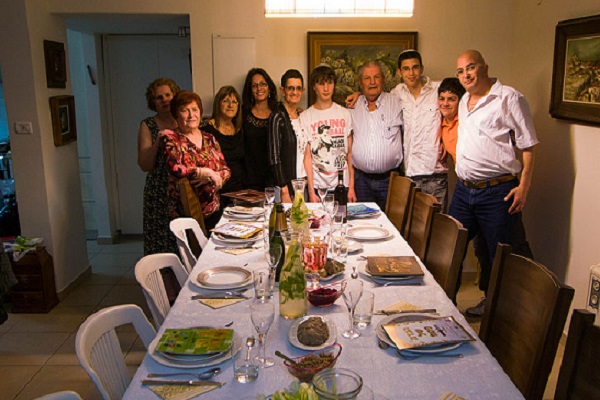
What Are the Four Questions and Why Are They Recited on Passover?
- By Kelly Frazier --
- 19 Apr 2016 --

The significance of the Passover tradition of Four Questions.
Passover or Pesach is a major holiday celebrated by Jewish communities around the world. This festivity commemorates the liberation of Jews from the Egyptian Empire as slaves and the foundation of the new Israel nation under the leadership of Moses. Passover is also associated with agriculture wherein it marks the beginning of the harvest season in Israel.
What Are the Four Questions and Why Are They Recited on Passover?[/tweetthis]
Though it’s a festivity, strict observance of Jewish customs is required. And among those is Seder, a special family meal filled with rituals that must be completed in specific order. There are 14 activities in Seder and the fifth of which is the Maggid (the story), the retelling of the Exodus story of the Jews from Egypt. Maggid is traditionally started with the youngest member of the family or group asking The Four Questions. The Four Questions which in reality are comprised of only one central question and four different answers are as follows:
The Central Question
“Father, I will ask you four questions. What makes Passover night different from all nights of the year?”
- First Question/Response: “On all nights of the year we do not [need to] dip even once, but on Passover night we dip twice! The first time, we dip karpas in salt water, and the second time, bitter herbs in charoset paste.”
- Second Question/Response: “On all nights of the year we eat chametz or matzah, but on Passover night we eat only matzah!”
- Third Question/Response: “On all nights of the year we eat various vegetables, but on Passover night we eat bitter vegetables!”
- Fourth Question/Response: “On all nights of the year we eat either sitting upright or reclining, but on Passover night we all eat while reclining!”
It is customary in Jewish tradition that the youngest member on the dining table asks the Four Questions. In the absence of a child or teen, anyone may do so. If only an individual is celebrating the Passover and having the Seder, it is also acceptable to address the questions to himself/herself. After the central question is asked, the leader of the Seder replies by asking what differences does the young ones or children notice. The young ones will eventually recite the Four Questions or responses.
There are different versions of the Four Questions but it usually starts with the phrase that directs the question to the “Father.” This according to Jewish tradition symbolizes the father and son relationship between the Holy Father or God and his children here on Earth. It is also noted that asking as a child stimulates God’s love even more.
The significance of reciting the Four Questions during Passover
There are different explanations as to why the Four Questions are asked during Passover. The tradition aims to explain why things (like the simple meals) are done differently during the holiday. The Four Questions also encourage active participation from children. The tradition aims to stress the importance of the freedom to express one’s opinions and thoughts even by the young ones. This is in contrast to the times when Jews are still slaves of Egypt that didn’t have any freedom or right. For Jews, freedom from individual internal constraints and probing Judaism through asking and seeking more is tantamount to attaining higher spiritual levels.
The question us Jews always ask on Passover: "Why is this night different from all other nights?" Part of the four questions that are asked.
— William Brownstein (@ILikeOldThings) April 6, 2012
Each of the questions has its own significance as well. Though considered as the least important question, dipping represents Jews strict observance of the mitzvahs or biblical commandments. Dipping in salt water reminds all of the tears of slavery. Eating bitter herbs or vegetables reminds everyone of the bitterness of slavery. And finally, reclining represents that deeper innate devotion. In a reclining position, the head is completely lowered or bowed before the divine.


















